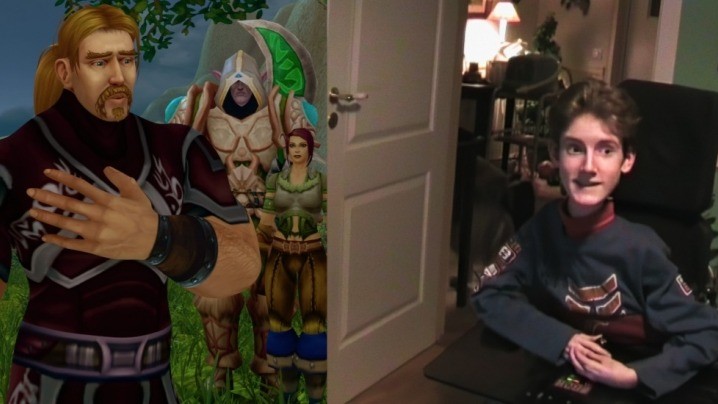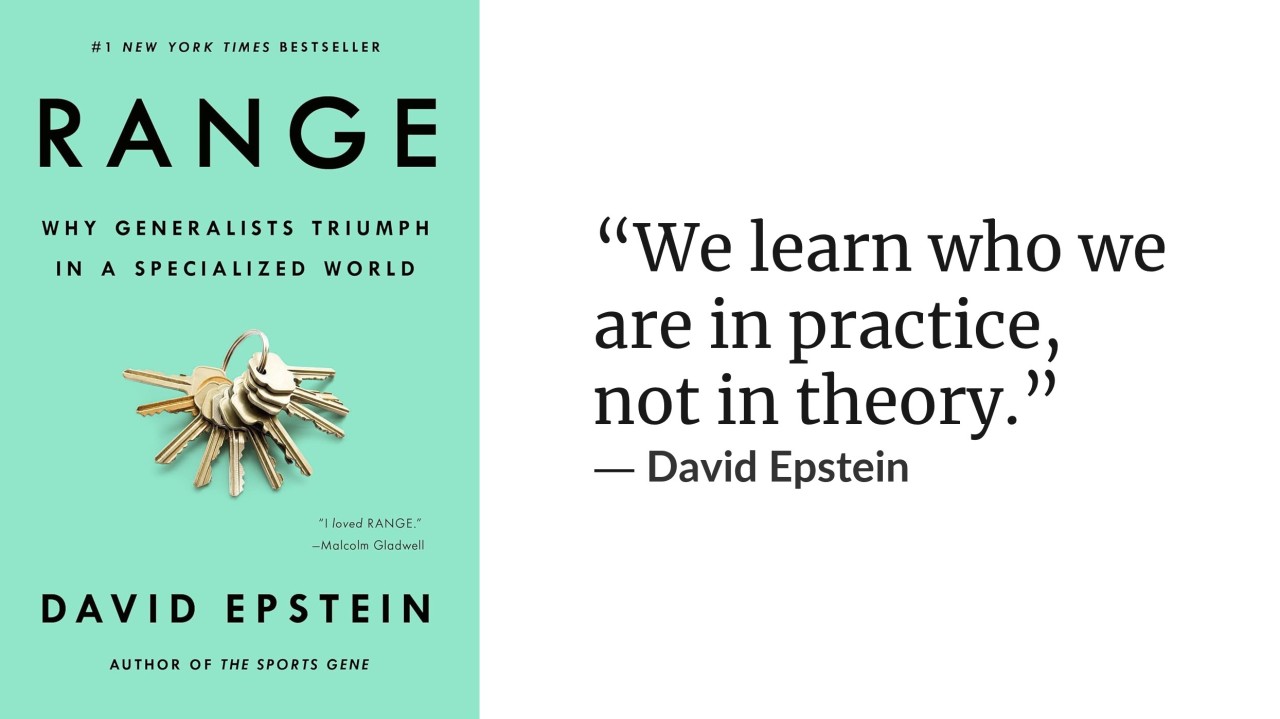
A few pieces I’m proud of, from OR adoption playbooks to accessible gaming and building psychologically safe teams.
Popular articles
May 3, 2023
Gaming as a youth had a positive impact on my life and helped me develop some valuable skills that I continue to use today.
Growing up, my brother, my friends and I played a lot of games. We had several gaming consoles including Sega, Sega Genesis, N64 and a PC. I have always been a fan of battling others in multi player games whether it’s split screen or over the internet.
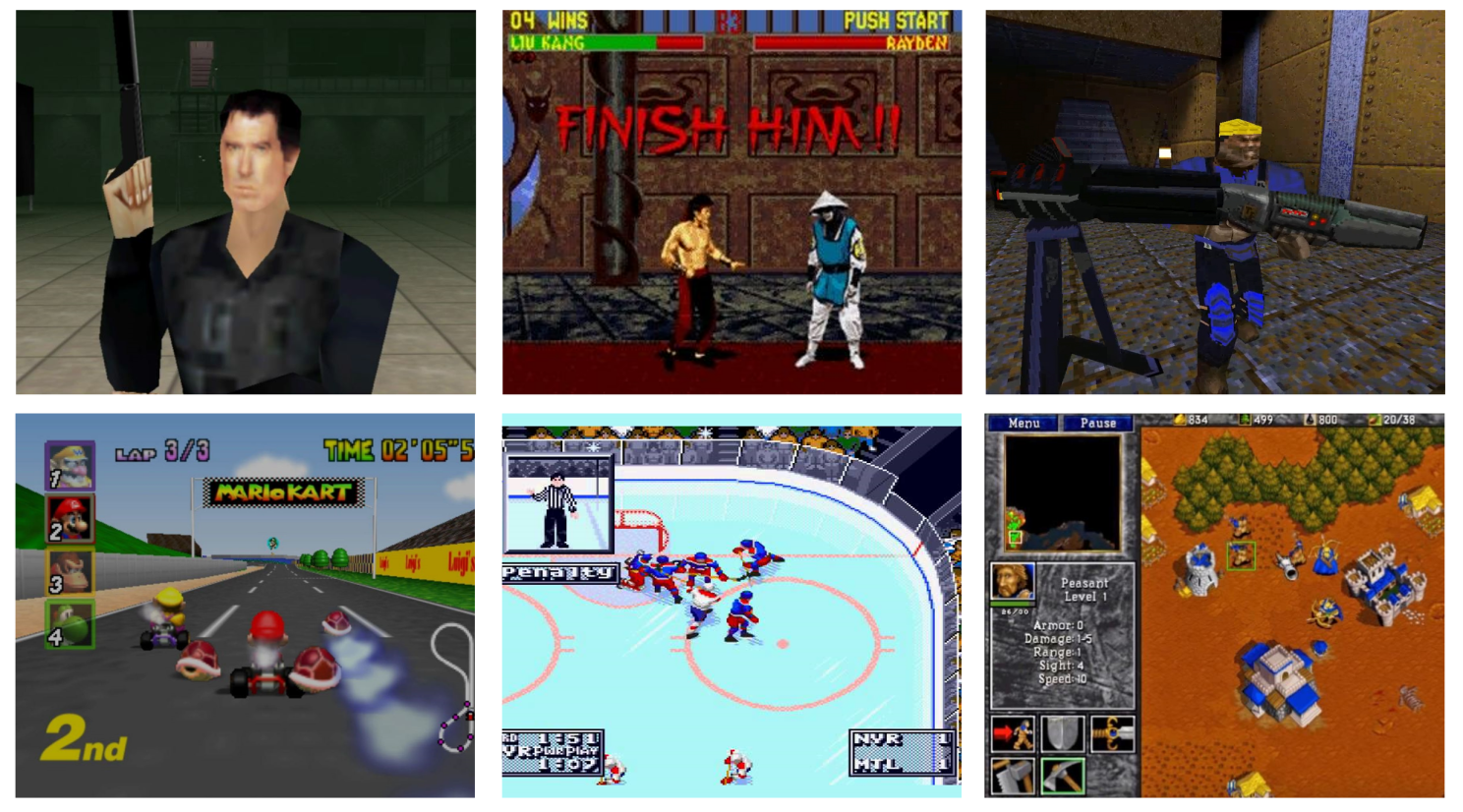
While I acknowledge that gaming too much can negatively impact individuals, when I reflect on my experience I believe it helped foster knowledge, teamwork and positive behaviors. In this article I share some of the skills I developed when playing that might make some unfamiliar with gaming take a different outlook on the growing activity.
How to be a team player
I was lucky enough to play a lot of organized team sports including baseball, soccer, hockey, lacrosse and volleyball. And although my coaches and teammates undoubtedly helped shape who I have become, playing online games on a team is an unique experience. There was no coaches and no parents, we were self motivated, organized and driven to win.
For example, when I was 12-14 I played a version of the PC game Quake called Team Fortress, often with my best friend Daniel Padinha. We didn’t just play this game casually, we were part of an online team that competed in a league. It was a capture the flag game with different classes of players. So similar to sports we had to establish who would play defense and offense and ensure we played together in our assigned roles. Strategies often evolved mid match based on the score and tactics the other teams were using. My character was an engineer who built sentry guns to protect the flag while providing ammo to my teammates. Little did I know that 6 years later I would be studying engineering at University of Toronto.
Leadership
Running a team with voluntary players of different ages from multiple cities was a fun challenge. Motivating teammates to perform together and organizing practices, scrimmages and league games was not such a simple task for an 8th grader (Que Skee-Lo - I Wish). Pre game planning and post game debriefing discussions in chat rooms were critical to help the team improve and more importantly created a sense of community. We had to recruit the best talent (and those with the fastest internet connections). I remember we had some older players from Alberta on the team who were very skilled, and I always thought it was cool that a younger guy with energy and focus could remotely lead our team to victory.
Importance of communication
The speed at which you could communicate with your team the position of the enemy and the location of your flag or their flag was critical. Initially microphones were not common and typing was not fast enough so everyone had to program their keyboard with preset messages that helped share critical game and map info with your team in real time. The sending and reading of these text communications was all done while trying to stay alive which often meant dancing around rockets, buckshot and primed grenades.
Comfort with Technology
Our first family computer was a 200 MHz Compaq desktop with a 33.6 Kbps modem. Having a computer was essential to my technological literacy and my passion for gaming inspired me to learn a lot about computers, specifically
- How to build/upgrade computers
- How to build websites with HTML code
- Typing
Speed is critical in gaming and so upgrading my computer and connection was essential as the games and graphics evolved. During my first gaming experiences I connected directly to my friends home computers using our home phone lines. If our mothers picked up the phone it crashed the game and high pitched screaming ensued. For reference my internet connection today is over 14,000x faster than my connection in the mid 90s! Below you can see the console, PC Systems and games I played over the past 30 years.
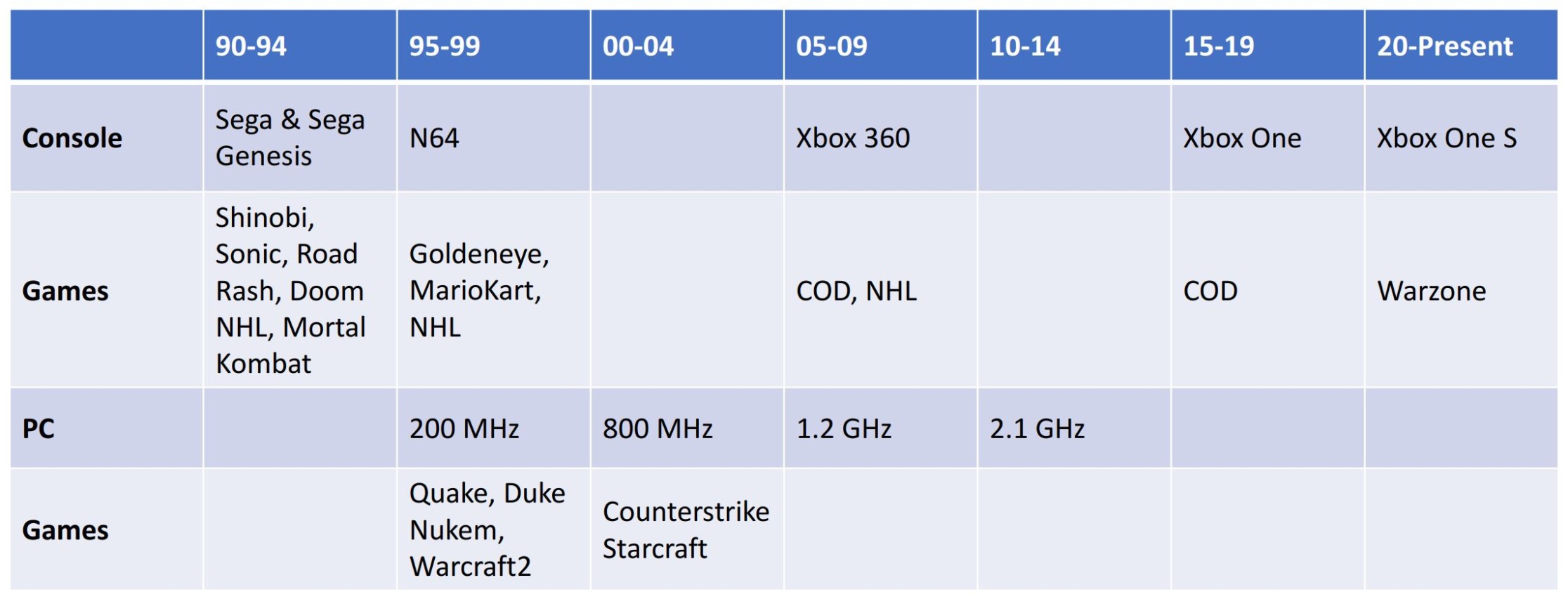
I noted above that recruiting members to the team was important and to help with attracting talent I built a website that tracked our roster, schedule, game scores, and record. Learning HTML at such a young age allowed me to excel in high school programing classes. Because I had already mastered the grade 12 curriculum back in grade 8, myself and a couple of my classmates were provided a special course project focus on building the schools website.
Studies have found that gaming has cognitive benefits such as better control of ones attention and improved spatial reasoning. Video games are also now used as an education tool, especially in medicine. According to a survey, 80% of medical students believed that video games can improve their education. A few studies have shown the value of gaming and simulation for surgical training specifically robot-assisted surgery.
Resiliency
Gaming is very competitive and full of emotional highs and lows. It’s important to enjoy the game whether you win or lose and how you behave after you respawn is what’s important. I rarely give up and consider my eternal optimism related to my sports and gaming experience. When faced with a problem I immediately start reflecting on how to improve, adapt and implement new strategies. The ability to recover from adversity is key and resiliency is an important quality especially for leaders. Twenty five years later I still enjoy gaming when I can find time. Similar to golf, some holes can be a struggle and perseverance is part of the fun.
The Present and Future of Gaming
It has been amazing to see how the gaming industry has evolved into a global market valued at $195 billion. I wish I did not sell my Activision stock at $12 over a decade ago - insert tear emoji. ESports, multiplayer video games played competitively, continues to grow in popularity. The Toronto Ultra, a professional Call of Duty team, have a sold out tournament (Major V) sponsored by Bell coming up with teams from North America and Europe. Its amazing to see the energetic crowds that come out to support and explains why the global eSports market is projected to grow from $1.4 billion in 2022 to $5.5 billion by 2029.
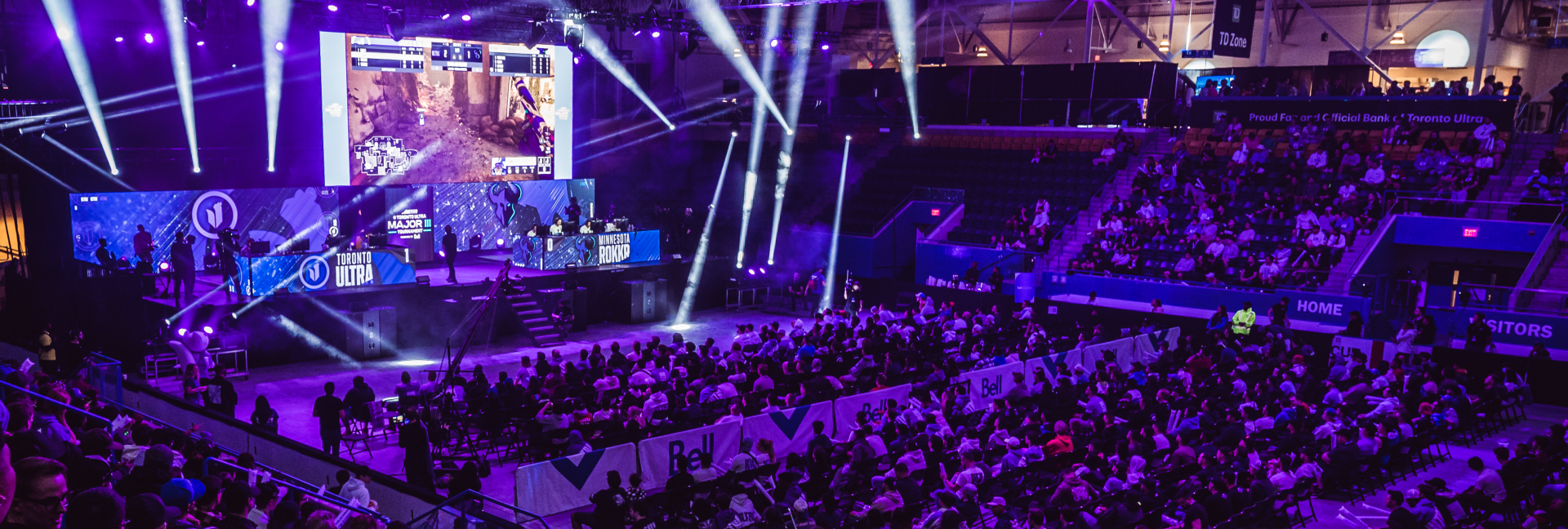
Gaming can be lucrative for the players as well. For the top 5 games over $790 million has been payed in tournament prize money. For example, an teenager recently won $3 million dollars playing Fortnite. The online gaming community that supports these players is huge. At the time of writing this article over 1.36 million people were watching streamers play the top 10 games on Twitch.
I remember when it was debated if skate boarding would ever be part of the Olympics, which it was in 2020 in Japan. I believe eSports will only continue to grow and one day become a common sporting event. The next time you think about gaming, I hope you realize there is more to it.




